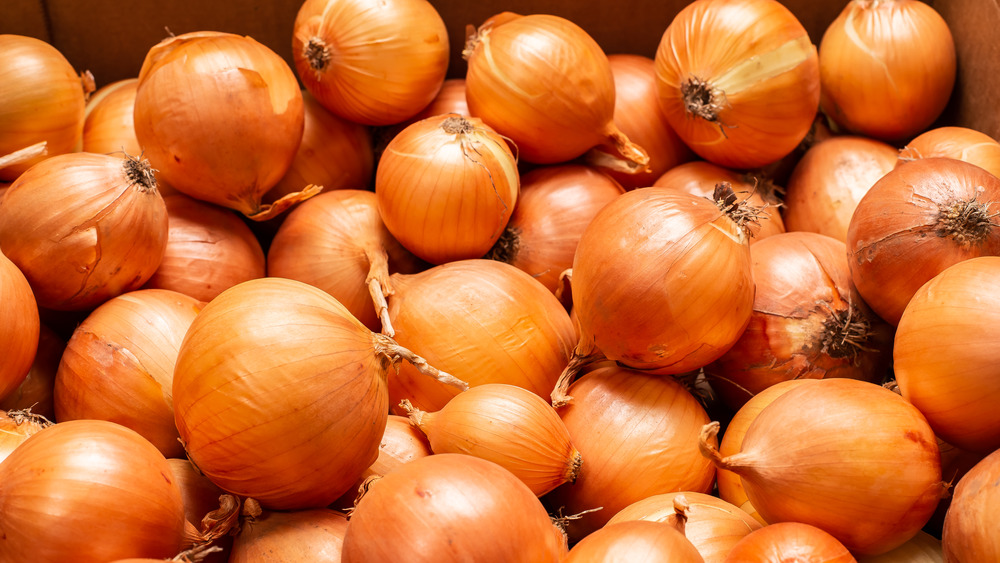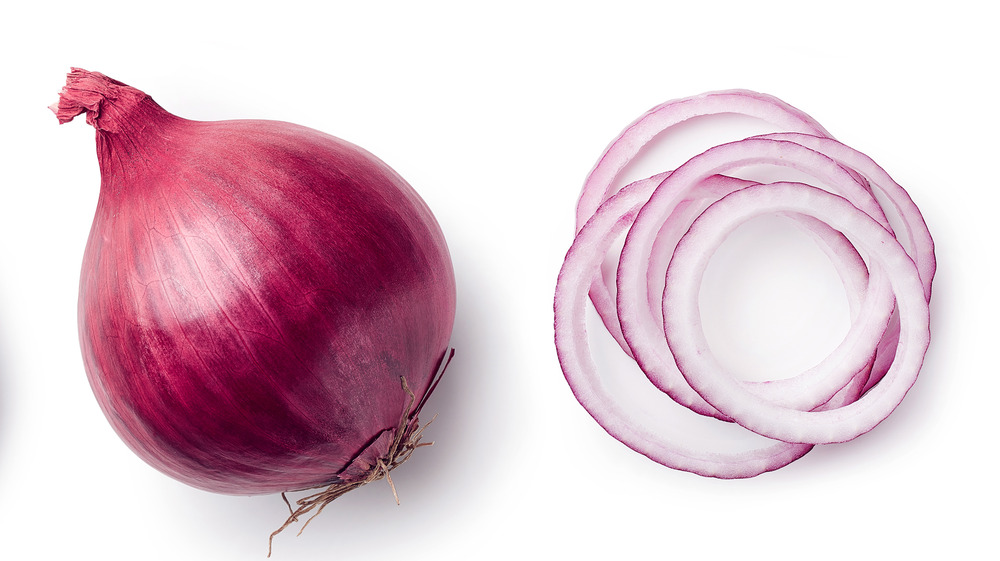Here's Why You Should Probably Cut Back On Onions
Onions are a very popular vegetable. Because of their versatility and rich flavor, they're a popular ingredient in tons of dishes, from sandwiches and soups to more elaborate fare like casseroles, burgers, and sauces. There are many different onion varieties, and they can easily be enjoyed either cooked or raw. In fact, onions are such a widely used food that it can be hard to avoid them. But could that be a bad thing?
Onions are an allium veggie, like garlic, shallots, and leeks, which have been shown to provide many heart-healthy benefits. Onions are high in sulfur, a beneficial compound that works as an anti-inflammatory agent, and can help to both lower blood pressure and reduce the risk of heart attack. They also contain high amounts of phytochemicals and flavonoids that can help reduce the risk of certain illnesses, like heart disease, stroke, and Parkinson's disease, according to Live Science. Furthermore, eating a diet high in onions may boost the immune system, reduce the severity of allergic reactions, and lower the risk of certain cancers, thanks to their high levels of an antioxidant called quercetin.
Onions can cause digestive and blood clotting issues
However, eating too many onions can cause some unpleasant health issues in certain people. Because of their high carb content, allium vegetables can sometimes be hard on the digestive system. Onions contain a carb known as fructan that can be difficult for the body to digest, which can cause uncomfortable bloating and gas. "Foods like leeks, shallots, and onions are poorly absorbed and cause increased water content in the intestine," professor of medicine at UCLA's David Geffen School of Medicine Lin Chang explained to Prevention.
Additionally, onions may work as a dangerous blood thinner in rare cases, thanks to certain compounds that help prevent blood from clotting. Although their natural blood thinning properties can help reduce the risk of heart disease or stroke in healthy individuals, they can be harmful for those who are taking blood thinners or who suffer from clotting disorders like hemophilia, per Gizmodo.
So while onions do contain good amounts of flavonoids and antioxidants, there are also other vegetables in which these nutrients can be found that are gentler on the stomach. Individuals who take blood thinners or have more sensitive digestive systems might want to consider substituting their onions for other healthy vegetables like spinach, kale, or carrots.

